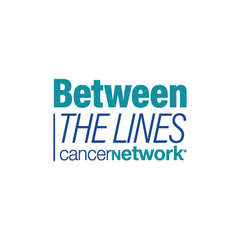
Key Takeaways for Use of Apalutamide With Androgen Deprivation Therapy
Genitourinary oncology experts share key takeaways and considerations for treating patients with metastatic castration-sensitive prostate cancer.
Episodes in this series

Simon Chowdhury, MD: What are some key takeaways from this paper? I’d say that metastatic castration-sensitive prostate cancer is a lethal illness and we must not underestimate it. ADT [androgen deprivation therapy] isn’t enough. Apalutamide is a very clinically meaningful drug. It’s safe and effective. So why would you not give apalutamide? At some talks we’ve been at, people have asked, “Is it negligent to give ADT alone?” With data like these, you’d be in a very difficult position to argue why you’ve given ADT alone. Don’t underestimate the disease. It’s a strange thing in medicine that because ADT works, we don’t implement the change quickly enough. I appreciate that it’s difficult and change is difficult. I wouldn’t change from my make of phone to another, but this is different. This is a step change improvement. I don’t know if there’s anything that I’ve missed, Neeraj.
Neeraj Agarwal, MD: Great summary. I’ll just like to add the bottom line for our listeners and to remind myself for my clinic that apalutamide in this paper improves overall survival in a significant and clinically meaningful fashion without compromising the quality of life of my patients. That’s a message I’d like to deliver from this work that we published together. Beyond that, as you said, not offering patients intensified androgen deprivation therapy isn’t justifiable. Unfortunately, a large number of patients, more than 50% patients in the United States, are receiving standard androgen deprivation therapy alone for newly diagnosed metastatic castration-sensitive prostate cancer, and that isn’t acceptable based on these data.
Simon Chowdhury, MD: I know you’re very passionate about this. I’m very passionate about the work and the studies that we do, not just the impact factor. It shouldn’t just be something that I’m putting on my CV [curriculum vitae] and quoting. It’s about benefiting the men we see in clinic. You’ve been a real champion of that, and the work you’ve done around the real-world data is incredibly impressive and very meaningful to me.
Transcript edited for clarity.
Newsletter
Stay up to date on recent advances in the multidisciplinary approach to cancer.

































